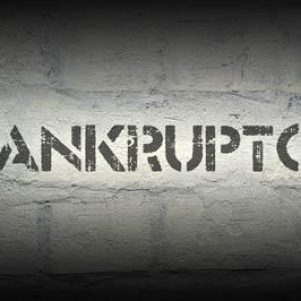The Insolvency Law of Spain protects creditors in case of misconduct or negligence by directors (administradores) of a company in insolvency; such a disposition is specifically useful as it is of utmost importance for there to be confidence in the protection that the economic legal framework offers to creditors.
When there is a company in insolvency and one of its directors has carried out an activity or behaved in a way that is detrimental to the company, the Law protects the creditors of that company against non-payment due to the aggravation of the company’s insolvency by the director in question. The objective of the Spanish Insolvency Law Ley 22/2003 de 9 de Julio (Ley Concursal) is to give the maximum possible protection to companies and to keep them solvent, this objective is achieved by widening the responsibility, bringing within its ambit circumstances such as the present, where directors carry out serious misconduct.
The Insolvency Law protects such creditors by the application of Article 164.1, article 164.2 & article 165 of the Ley Concursal. The Provincial Court of Madrid in its judgment of the 5th of February 2008 held that first given a scenario of insolvency where the director had carried out misconduct or acted negligently it would first be analyzed whether the behaviour of the director can fit within the denominated strict liability offence under Article 164.2 (presumption iuris et de iure) or Article 165 (presumption iuris tantum) or in the general offence under Article 164.1 of the Ley Concursal 2003. The establishment of the offence would activate all the judicial consequences.
Under article 164.2 the offence is a iuris et de iure presumption, in which once the specified type of behaviour is demonstrated, the defendant is presumed to be guilty and this cannot be proved contrary. This offence operates under a similar theory to the Anglo-Saxon strict liability. The types of behaviour that activate this presumption are listed below.
Types of Strict Liability
- Serious non-fulfilment of accountancy obligations
- Falsification or inaccuracy in the documents which accompany the solicitude of insolvency
- Breach of agreement with the creditors
- Hiding of assets to prevent the creditors from expropriating
- Fraudulent extraction of goods and equity of the creditor
- A simulation of a false situation of equity through judicial mechanisms
Within this responsibility of the directors in charge of insolvent companies there also exists a iuris tantum presumptions system under article 162.3. These presumptions operate differently, once the behaviour is established the defendant is presumed to have intention unless it can be proven to the contrary.
For this responsibility to exist there must be a lack of cooperation with the judiciary or a failure to present the relevant documentation for the insolvency proceeding (article 165.2). This responsibility is also activated when there is a failure to hand in the legally required accounting documents (article 165.3) or if they have failed to declare the company insolvent (article 165.1).
If the behaviour does not fit within Article 164.2 or Article 165 then the behaviour may fall under the general offence of Article 164.1 which states that the director will be guilty of generation or aggravation of insolvency when there is intention or serious culpability on the part of the defendant to further this insolvency.
In principle, the misconduct or negligence of a director made in a situation of solvency in bonis cannot be considered to be determinative nor causative of the insolvency and therefore these misconducts should not be relevant for the qualification of the action as guilty of any of these offences as the creditors cannot demonstrate that they have derived any damage due to these actions of the director.
However, there are also other dispositions in the Spanish Mercantile Legislation regulating the civil responsibility of company administration (e.g. article 134 of the Law of Anonymous Societies – Ley de Sociedades Anónimas). Nevertheless, these dispositions protect the company against its directors in a more general scope.
The punishment for these offences is to be found in Article 172 of the Ley Concursal these are as follows:
- Prohibition to administrate assets of others and represent others for up to 15 years
- Loss of rights against the company
- Possibly an obligation to compensate the damages
Concerning the punishment, the quantity of compensation the Court would have to impose should total the deficit, unless there are circumstances which mitigate the responsibility. These circumstances are for example the level of intervention of each of the directors in the illegal act, the seriousness of the offences and the reach of the damages caused to the creditors.
These provisions provide wide protection to creditors of companies whose directors have acted negligently, carried out misconduct or acted in bad faith. Given these times of financial difficulty, holding directors accountable can be extremely important to creditors in receiving their due payment and thus demonstrates the recognition and value that the Spanish Insolvency Law gives to the protection of creditors.
John Pérez & Mariano Jiménez
For additional information regarding directors’ responsibilities in Spain,





